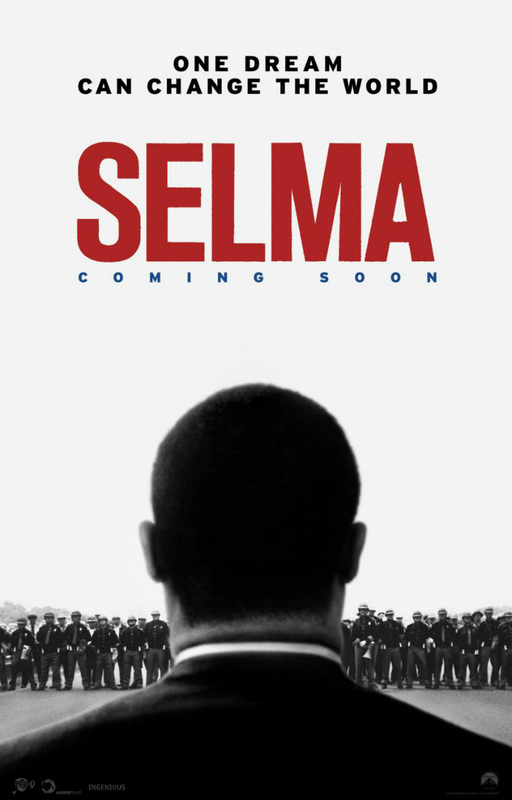The problem with being an icon is that it can make it much harder to see the person underneath. And if you do manage to, it risks diminishing the greatness that made us honor them in the first place. Any movie about Martin Luther King Jr. must understand this, but the makers of “Selma” not only know this, they solve the conundrum. They never let us forget that people were at the heart of the Civil Rights Movement, and not the noble paper cutouts who never doubted or stumbled.
“Selma” is the kind of biopic that seeks to examine a person not through a whole life, but through a specific period of it, in this case the turbulent three months where King was fighting for voting rights in Selma, culminating in a march from Selma to Montgomery and the Voting Rights Act of 1965.
When we first see King (masterfully played by David Oyelowo of “The Butler” and “Rise Of The Planet Of The Apes”), he's in full icon mode, staring straight at the camera and making a calm, measured speech. But in an interesting play on our expectations and views, it turns out he's staring at a mirror and rehearsing said speech while preparing to receive his Nobel Prize.
It's a sign of things to come, as “Selma” maintains that most magical of all balancing acts, of portraying a movement through the people involved without detracting from them or the events. The film focuses less on speeches than on the strategies that King used to call attention and force progress, mostly where dramatic media attention was a given. In the first theatrical movie about King, it's rather expected, yet still a relief, that he would be depicted as as a man rather than a saint. It also means the inevitable family scenes that focus on the toll his work takes on his personal life, and the confrontation where his wife Coretta (Carmen Ejogo) admonishes him about his infidelities packs a genuine punch.
There are few cinematic preparations for the violence peppered throughout “Selma.” A young man is gunned down in a restaurant following a protest in front of his sister and elderly father. Four little girls are killed when their church is bombed while discussing how pretty Coretta Scott King's hair is. A woman is murdered off-screen by Klansmen a mere five hours after the film's triumphant ending speech.
That's not to say there aren't happier fates. One activist, Andrew Young, became a UN Ambassador, Congressman, and twice Mayor of Atlanta. Another, John Lewis, becomes a long serving Georgia Congressman (and author of the graphic novel “March: Book One” about the Civil Rights Movement), while many of the people who opposed them, such as Alabama Governor George Wallace (Tim Roth) and Sheriff Jim Clark (Stan Houston), saw their careers decline or end outright.
Other accounts are more complicated. While white people are shown flocking to the cause after seeing the violent footage on TV, director Ava DuVernay keeps her film refreshingly absent of white saviors, depicting most white authority figures as obstructionist at best, with President Johnson (Tom Wilkinson) deciding to unleash J. Edgar Hoover (Dylan Baker) to discredit King before finally coming around on the Voting Rights Act at the end.
So while hope is naturally a large part of the film, “Selma” refuses to let us forget how far we have to go; nor does the movie allow us to believe that King's work is complete. After all, whenever we fool ourselves into such complacent thinking, we hear Eric Garner gasping that he can't breathe, that Trayvon Martin is deemed dangerous enough to warrant lethal force, and learn of Milwaukee's own Dontre Hamilton and Corey Stingley's lives end prematurely. (There's a song by Common, who also plays activist James Bevel, that mentions Ferguson, and other contemporary examples of injustice.) Maybe that's why the words coming out of the mouths of those who oppose the Movement's progress don't sound nearly as unfamiliar as they should. There's even a shout-out to our own budding NSA state when “Selma” culls information about King's whereabouts and actions from FBI surveillance files.
The only drawback is by the end, King himself risks getting overshadowed by the very events he helps spark, and the film drags a bit.
Watch “Selma.” Like the best historical films, we learn about our past, and the struggle we are still fighting.
Grade: A-

 RSS Feed
RSS Feed